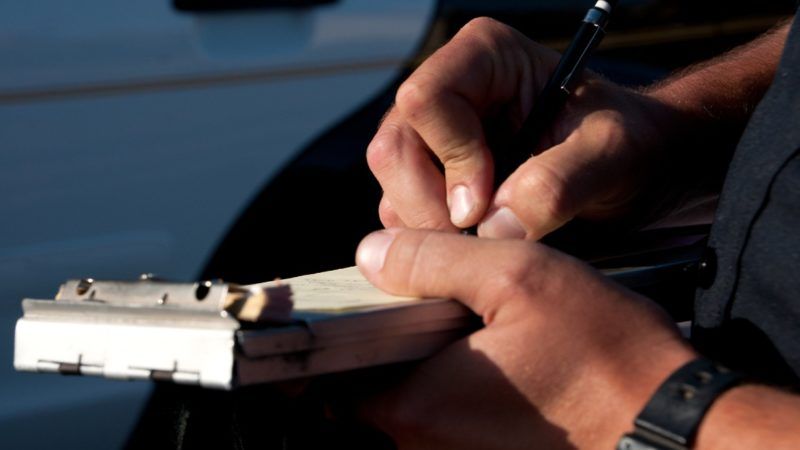In the Middle of a Pandemic, This Alabama City Is Still Throwing People in Jail for Unpaid Traffic Tickets and Missed Court Dates
County offices and courts are closed for COVID-19, but the jails are full.

Thanks to the COVID-19 pandemic, several municipal buildings in Montgomery, Alabama, have closed—including the ones where you get new vehicle tags and deal with traffic tickets. That didn't stop police from pulling over Reunca Lewis for driving without proper tags, or from jailing her over unpaid tickets and missed court dates.*
The 23-year-old's troubles began on April 17. According to a report in Alabama Appleseed, Lewis had already been to the police station that day: Her car had been stolen and involved with a hit-and-run, so she spent a good deal of the day speaking with officers about what had happened. After she left the station, another cop pulled her over and asked why she didn't have tags.
As she showed the officer her registration and proof of insurance, Lewis explained that she could not obtain new tags because the office that issues them had been closed. The officer then called dispatch, and three additional police vehicles arrived on the scene. Lewis was then arrested after officers found that she had failed to appear in court on two occasions, including one scheduled for March, when pandemic shutdowns in the city had already begun.
Lewis had to spend three nights in a small cell with other women at the Montgomery City Jail.
Several jurisdictions have tried to reduce their jail and prison populations to combat the spread of COVID-19, but Montgomery was apparently more interested in enforcing minor violations. Lewis told Alabama Appleseed that most of the women occupying her cell had been arrested in connection with unpaid traffic tickets.
Lewis also told the website that officers checked temperatures prior to booking but that at least one male inmate with a fever was booked despite the procedure. She added that the jail had tried to separate new arrivals from older inmates—but not, as far as she could see, to separate new arrivals from each other.
WSFA 12 News recently reported that five inmates and five employees at the Montgomery City Jail have tested positive for COVID-19. Because of the threat posed by the coronavirus, Gov. Kay Ivey issued a proclamation on March 26 giving counties and municipalities discretion to issue a summons in lieu of arrest for violations and nonviolent misdemeanors.
Reason reached out to the Montgomery Police Department to see if it has modified its enforcement of the rules around tags and traffic tickets. Michael Briddell, the city's director of public information and external affairs, responded by sending us a list of 38 open warrants (and 17 closed warrants) against Lewis, dating back to 2015. While this did not address our question, the multitude of license, tag, insurance, and headlight violations do illustrate how fees and fines inadvertently criminalize poverty.
Pressed for more information, Briddell replied that "Montgomery has taken extraordinary steps to minimize the jail population by delaying adjudication and facilitating the early release of non-violent offenders." Reason asked again if the police department is changing its enforcement policies for traffic violations. The question went unanswered.
Reason also asked the closed Montgomery County Probate Office if there was a temporary extension policy in place for tags. The office said those needing renewals in April will have their fees waived until May 14.
And Lewis? This week she was able to have a videoconference with a municipal judge, who confirmed that she would receive a new hearing date. But the judge did not provide her with a clearance letter. She now has a suspended license.
CORRECTION: The original version of this article stated that Lewis was arrested after missing a court hearing because it was canceled for COVID-19. The Montgomery Police Department told the Alabama Appleseed on Thursday that Lewis failed to appear for a hearing in January as well and that "a warrant would not have been confirmed merely on [the March hearing] because of COVID-19."


Show Comments (18)